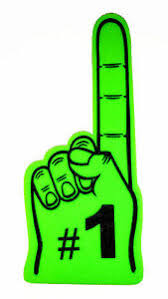weekly column
|
Each week, find a commentary on something connected to verses of Torah or another source of wisdom
|
|
Each week, find a commentary on something connected to verses of Torah or another source of wisdom
|
 The Last of Deuteronomy By loving the Lord your God, heeding His commandments, and holding fast to Him; for thereby you shall have life and shall long endure upon the soil that the Lord swore to your ancestors, Abraham, Isaac, and Jacob, to give to them. Deuteronomy 30:20 I met many of my great-grandparents, and I was fortunate enough to have a relationship with two of them – my mother’s mother’s parents. Bobbie and Zaydie (that’s Chicago-ese for Bubbe and Zeide, the Yiddish words for Grandma and Grandpa) fought like cats and dogs and were totally in love. Bobbie took care of Zaydie, which included making sure he was fed three times a day and had a shot of whisky with most dinners. Zaydie smoked cigars and a pipe and, when I knew him, spent most of every day in a stuffed armchair with the “Forverts,” the then-daily Yiddish newspaper, close at hand. The rumor was that the two of them had fallen in love back in the old country when marriages were mostly arranged. There was an abandoned engagement that may or may not have involved a dowry. They made their way to America (or, as they knew it, Amerike) and embraced the life wholeheartedly. I always thought it was a wonderful coincidence that Zaydie’s name was Benjamin Franklin Schwartz and that he was born on the Fourth of July. Yeah, maybe. Zaydie was a tiny man – not a little person, but short enough that I stood eye to eye with him by the time I was ten. I knew very little about his life as an immigrant making his way in this country, but he did well enough to buy a two-flat where he raised his family and where many of his children and grandchildren lived over the course of their lives. He also opened his home to non-relatives who needed a place to stay, sometimes for years. Zaydie loved this country and loved to vote. When he barely could walk in his later years, he nonetheless would put on a suit and shuffle off to the polling place on election day. Since this was in Chicago, for all I know he may still be voting. He loved Bobbie, and though they spent a lot of time yelling at each other, when she died, he would frequently sit looking at her picture, sighing and crying. But the one story Zaydie was most proud of was how he helped to found an orphanage in Chicago when he was a young man. The story shape-shifted over the years, but it involved him (and others) descending on City Hall and demanding permitting and financial backing to take in the population of Jewish orphans that had swelled due to poverty, disease, and abandonment. The official history of the Marks-Nathan Home does not mention Zaydie, but it doesn’t matter. If he was the mover and shaker or just a small voice in a large crowd, it was the illustration of his life he chose to share with his family. It was his legacy to us. Along with cigars and Yiddish and sitting in the sukkah and schnapps and ten shiny pennies he always had for us, this was the story he wanted us all to know. The first book of the Bible is filled with stories of the lives of Abraham, Isaac, and Jacob. Yes, Eve and Methuselah, Noah, Rebecca, Dina and especially Joseph get plenty of verses, but the fullness of life and experience for these three patriarchs – father, son, and grandson – is there for every reader to encounter. However, toward the end of the Five Books, their lives are distilled into their legacy: the land. Each of them had a variegated reputation, their versions of the details of my Zaydie’s life. But what became identified with them more than anything was the land to which one traveled, one settled and one returned. Arguably, it was the most important project of their lives, as evidenced by the words Moses chose to inspire the people and honor his ancestors. What is it that will be my legacy? Will I choose the story to tell as the defining lesson of my life, or will it be chosen for me by those who decide to remember me? I write this at a time of transition in our country when the question of legacy weighs heavily on leaders and followers alike. Some legacies are chosen by us, and some for us. But I think it pays, even from an early age, to consider what it is we do that endures. (Just for the record, though Bobbie was a looker in her day, the photo shows my much younger sister sitting on Zaydie’s lap.)
0 Comments
 The Last of Deuteronomy The secret things belong to the Lord our God, but the things that are revealed belong to us and to our children forever, that we may do all the words of this law. Deuteronomy 29:28 Algorithms are sequential mathematical calculations that can arrange and rearrange all sorts of data mostly used in problem-solving by computer. If you understand that, you are ahead of me. You are familiar with algorithms because they determine what turns up in your social media feed – advertisements, click-bait, postings by friends (that is, not necessarily personal friends, but people with whom you have a shared algorithmic connection). If you watched a video of cute little kittens, you will see other cat videos recommended to you. If you ordered a package of warm socks for the winter, you will hear from many footwear companies and apparel purveyors. And if you are reading this column on an electronic device, do not be surprised, when you next log into YouTube, near the top of your list “chosen for you” is a clip of a black-and-white game show from the late 1950s starring Garry Moore. Algorithms are not magic. They are written by programmers, one of whom was probably the kid who programmed your VCR or hooked up your desktop back in the day. The concept is very simple. By sorting and resorting little bits of information, these calculations can provide an approximation of the answer to any quantifiable question. “What will Jack watch on Netflix” is more accurately predicted by figuring out what Jack has already watched on Netflix, which the good folks at Netflix know because there is an algorithm that tracks what Jack watches. They are the basis of artificial intelligence (AI). And that means that they have application in all sorts of fields. For example, if you have ever used a web-based service to find candidates for employment, they have been filtered by algorithms. Especially in small companies, the ability to sort applications by appropriate criteria can be invaluable. Geography, age, education, experience – all of these variables can be considered by algorithms to reduce hundreds of applications to the appropriate few. Likewise, a consumer seeking a line of credit or a mortgage can qualify or not based on objective criteria. Or, college admissions can be evaluated on a schools standards for grades, test scores and desire for a diversified student body. There are those who make the argument that such mathematically precise calculations help to eliminate the biases that reside in the hearts and minds of decision-makers. But unconscious bias resides in the heads and hearts of all human beings, including the creators of algorithms. With perhaps the very best of intentions, the inclusion of a zip code, a marker of illness, previous employment in a troubled company may disadvantage the applicant for financing a new car, getting favorable rates on health insurance or being considered for employment. The company may be unaware; the applicant may be unaware; the programmer may be unaware. The human aspect is missing. Well-targeted questions, opportunities for nuanced discussions, deepening the understanding of past circumstances – all of them hard to quantify and therefore considered outside the realm of the computations – cannot mitigate a circumstance that does not get past the first threshold. A recent anecdote in the real estate section of the newspaper illustrated the phenomenon. An interracial couple wanted to sell their house near the border between their mostly-White neighborhood and a mostly-Black neighborhood. The husband, Black, was home alone when the appraiser came to value their property, and by comparing it to the houses owned by neighboring Black homeowners, offered a valuation much lower than the couple expected. The wife, White, arranged for a second appraisal and greeted the appraiser. The valuation went up $150,000 – about 35%. And my interest in the occasional order of kosher pastrami does not prevent the company that ships it to me from offering me decidedly non-kosher selections. The solution is not simple. Ethicists need to look at algorithms. Programmers must work among diverse colleagues. Watchmen need to watch the watchmen. The secret things in our hearts and minds may be unknown to us and to our children. Perhaps it is not only the Holy One who can ferret them out.  The Last of Deuteronomy These are the terms of the covenant which the Lord commanded Moses to conclude with the Israelites in the land of Moab, in addition to the covenant which he made with them at Horeb. Deuteronomy 28:69 I recently finished one of my marathon encounters with customer service at a credit card company. We got the card because it was recommended as having the best point reward program. (Our other three cards have frequent zero-point interest, no credit limit and/or a Chicago Cubs logo on the front.) These cards are mostly for security purposes (and the points) because we pay off our bills in full every month. Of course, in order to use the cards and access the points, we had to agree to Terms and Conditions. Usually, the most important details are highlighted – interest rates, minimum payments, penalty fees, arbitration requirements. But there are pages of densely packed tiny print written, I am sure, by highly trained attorneys that set all kinds of terms and all sorts of conditions that are required by regulation and developed by the company. I never read them. Those kind of terms and conditions also apply to health insurance, mortgages, auto loans, home improvements, computer apps, internet and data service, appliance warranties, and small electronics. I never read them. Once, after a regularly scheduled out-patient medical procedure, the condition of my discharge required me to sign a release that, I was told, included an agreement not to sign any legal documents for twenty-four hours because of the lingering effects of anesthesia. I stared in incredulity at the nurse who presented me with the clipboard and pen who said, “I know. You are not the first one to question this. You are not even the first one today.” I signed. I never read the terms and conditions. My four-and-a-half-hour session with four customer service reps over two days was about rebooking a flight that was canceled by COVID-19 restrictions last year. I called with new dates for the rescheduled vacation, including flight numbers and the information the company had provided on how to rebook the flights using my returned points. So why did it take so long? Terms and conditions. The very specific circumstances of rebooking were in black and white, seemingly to prevent me from ever using the credit at any convenience to myself. I never read them. This problem is not new; it is not an invention of modern commerce and litigation. A classic legend from almost two thousand years ago imagines a confrontation between Moses and the rebel leader Korach from almost fifteen hundred years before that. Korach asks if a garment made completely of blue thread fulfilled the requirement of a blue thread in the tassels, as included in the terms of the covenant. Moses says no. He asks if a houseful of sacred books of Scripture would exempt the resident from posting a few verses of the Bible on his doorpost, as required in the terms of the covenant. Moses says no. Korach scoffs at the entire endeavor. Mind you, this legend is told by the rabbis who held Scripture so sacred that they studied its every jot and tittle as holding some divine revelation. There were, however, things they even they found inscrutable. They chalked them up to categories they called “statutes,” divine commandments that did not have apparent logically derived rationales. The fact that an individual may not be able to explain why the tassels must have a blue thread or the doorpost of a library must have the same verses as a bedroom without a single book did not change the terms and conditions. Neither did the excuse “I never read them.” In a society based on personal autonomy like the United States, every set of terms and conditions must be restated for the individual and agreed to by that person. There are, of course, some exceptions. Those collective terms and conditions that were accepted by representatives of an entire generation on behalf of all subsequent generations are still in force. “We the People of the United States” for all sorts of reasons broadly stated, did “ordain and establish this Constitution for the United States of America.” In a system based on collective responsibility like many faiths, but certainly like Judaism, the terms and conditions apply without personal affirmation. Maybe that’s why there is such a preoccupation with learning (and by “learning” I mean sacred studies, not merely how to write the legal documents that I never read) in Jewish culture. The terms of the covenant made at Horeb – that is, Mt. Sinai – and Moab – that is, Moses’ instructions in Deuteronomy – are incumbent on every consumer, not just the Levitical customer service reps. That’s why I always read them.  The Last of Deuteronomy Cursed be he who will not uphold the terms of this teaching and observe them – and all the people shall say, “amen.” Deuteronomy 27:26 Ah, the power of the crowd. If you have ever been a part of one, you know what I mean. You go to a home-town game of your favorite sports team and the energy of thousands of fans, cheering and booing, adds to the experience. Seeing a comedy in a crowded theater (remember that?) makes the laughter more contagious (and the ill-timed silences more profound). And when the familiar opening riff of a rock-and-roll classic blasts from the stage, you, along with everyone around you, are born to run. I leave it to scientists to explain the physical reactions that are generated by being a part of such a collective experience. I myself can report both as participant and as observer that there is an undeniable energy that emanates from an inspired crowd. The question is, what inspires them? Back when I was a congregational rabbi, I was glad to exploit this group mentality. When I was skilled and fortunate enough to compose a lesson that engaged people, I could feel the intensity and perceive, when I brought a teaching or a sermon to conclusion, what my wife called a “quality of silence” that vibrated through the sanctuary. I had the privilege to work with a cantor whose voice had the same effect on worshipers. And on those occasions when we integrated our presentations – for example, one memorable time that I discussed and she sang Leonard Cohen’s “Hallelujah” – the effect was so electric it likely violated the prohibitions of labor on sacred Jewish holidays. But I have seen that collective energy used for less holy purposes. A couple of summers back, when we were not prisoners of a virus, I stood on the desolate parade ground on the outskirts of Nuremberg looking up at the concrete platform that hosted evil incarnate before I was born. The quality of silence in that place was of a distinctly different nature, still whispering the deafening shouts of (mostly) young (mostly) men in adulation of someone asking them to do what, in private reflection, they would most certainly know was wrong. Somewhere between these two extremes are political rallies in this our democracy. My college roommate, still my best friend, refuses to participate in the chanting that is so often a part of rallies. He can’t stand the exercise. While people around us were being led in “Hey hey, ho ho, [political figure] has got to go” he would just be shaking his head. I think of him whenever, in my capacity as the leader of an advocacy group, I attend a demonstration and get handed a printed list of chants to lead when I conclude whatever brief remarks I am asked to give. Rather than choosing to channel Country Joe McDonald (“gimme an F…”), I mostly decline, using my age as an excuse. Plus, I have begun to see how dangerous this chanting business can be when the crowd is encouraged by a manipulative speaker. I guess “four more years” is innocuous enough, but “lock her up” or “stop the steal” encourages and justifies the diminishment of the social order and the humanity of those who disagree. Reading a bill of particulars and asking people to shout a verdict is mob rule. It may be as old as the Bible, but it has a decidedly unholy purpose. It is one step away from the townspeople grabbing torches and marching on Baron von Frankenstein’s mansion, which makes for great entertainment but very bad – and very illegal – public behavior. There is one thing that commends riling up a crowd and it is this: the Riler-in-Chief of the moment is face to face with the Rilees. The speaker must take responsibility for what comes out of their mouth, and there is collective witness (and most often a record) of what they said. Those who succumb to herd impunity cannot deny its origins. The amen-activity is attached by a string that is fixed at one end to the speaker and the other end to the actor. It is different than the anonymous (or, at least, mitigated) rabble rousing of social media, where Q can dodge the onus by remaining Anon. And it is because of this last technological innovation that I understand Moses reciting the imprecations and demanding the affirming chant at the end. The feedback is immediate, the effect is electrifying and the message – in this case – is essentially moral. Yet I cannot help but think that if Moses had thought it through, he would have rallied the crowd around blessings.  The Last of Deuteronomy And that He will set you, in fame and renown and glory, high above all the nations that He has made; and that you shall be, as He promised, a holy people to the Lord your God. Deuteronomy 26:19 Early in his presidency, Barack Obama was asked by a British reporter if he believed in American exceptionalism. He responded, “I believe in American exceptionalism, just as I suspect that the Brits believe in British exceptionalism and the Greeks believe in Greek exceptionalism.” His political opponents, always on the lookout for a fault, found it in this remark. In fact, six years later, the quotation found its way into the campaign of one of the many Republicans hoping to succeed him in office. How could an American president not believe unequivocally in the uniqueness of our national endeavor, the candidate wanted to know. A relativistic approach to this foundational value of how we see ourselves was the source of (what the candidate identified as) the decline in respect for the United States. I sort of sit on the sidelines of this issue because a lot of the same folks who endorse the notion of American exceptionalism find the idea of Jewish chosenness to be offensive. I admit to wobbling back and forth on the question of whether I believe in it. On the one hand, it’s in the Bible, from beginning to end, starting with Genesis where Abram is told to be a blessing and that “those who bless you I will bless and those who curse you I will curse,” and ending here in an unequivocal statement. On the other hand, the equality of all people, which is clear even earlier in Genesis, has led every generation of Jewish scholars to affirm that Jews are chosen for service, not for privilege. And certainly, every faith that has begun since Judaism has insisted that its teachings (and the adherents that follow them) have superseded the Jewish people and their Bible as God’s most recent chosen. The bickering over this title of “chosen” is like Tom and Dick Smothers squabbling over the claim “Mom always liked you best.” So I suspect that the Christians believe in Christian chosenness and the Muslims believe in Muslim chosenness and the Baha’is believe in Baha’I chosenness, not so much as favored by God for their inherent worth, rather designated as the repository of God’s most authoritative revelation and instruction. And I equally suspect that we all harbor deep if sometimes unspoken doubts about the claims of communities that are not us. Most recently, I have been more concerned with a different question than whether America is exceptional or Jews are chosen. The question is this: what difference does it make? Were I to discover that Luxembourg or Lesotho was exceptional, either more so or in a different way, would I change my allegiance? And though I have found much to admire and even embrace about other faith traditions, in what competition does it matter who wins the gold medal, who wins the bronze and who was eliminated in the first heat? I play for the team to which I belong, appreciating the efforts around me. Woven throughout the Bible, and woven throughout the stories our societies tell us, are representations I believe are meant to motivate right and good behavior – and even right and good belief. This claim of chosenness stands alongside the extended sections of threats. If you break the law, the courts will punish you. If you break the covenant, God will punish you. And if you turn away from fidelity to the mission of your people, calamity will befall you. Is it integrated into our psyches that goodness and righteousness occur only to please those with authority over us, or to avoid punishment by those with power? Must we believe ourselves to be better than others before we will be good for the sake of goodness so as not to cause doubt about our claim? And maybe more important, does the claim to elevated status actually exempt us from meeting the standards we commend to others? We are at the end of four years of painful reckoning of what some people consider America’s former greatness and others consider its continuing shame. The debate will not be settled soon or, perhaps, ever. But how we each confront the notion that something other than our own conduct determines the content of our character can make the arguments moot. Some ideas, accurate or not, deserve to atrophy – preserved as history, but not as legacy. |
Archives
October 2023
Categories |